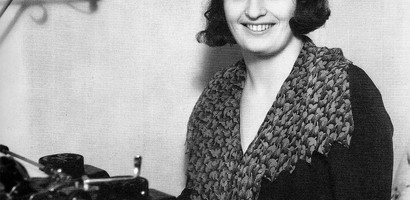Just caught some re-broadcast of a 1988 interview of Gore Vidal, a man whose work I don’t know too well, but whom I am inclined to admire. He certainly made his path to hell but he stood out in the steps he took to get there.
Vidal’s interviewed him for his early book (1948, I think), The City and the Pillar, a heroic book about “gays.” Vidal immediately interrupted and said it wasn’t about gays. It was about two normal young men who had an affair. One went on to live a successful “heterosexual” life, and another didn’t.
Vidal went on to compare the very idea of “heterosexual” and “homosexual” as kinds of persons as a fiction. The words are adjectives, he insisted, that describe kinds of sexual actions. Not persons. He spoke of saying one is one or the other as akin to saying one likes the taste of potatoes and another prefers some other food.
On the sexual preference as food preference analogy, I thought Vidal raised a bunch of obvious questions. For example: is Vidal asserting that marital love has nothing to do with sexual exclusiveness. Is he asserting that marriage and family are ridiculous superstitions? It seems to me that he implied that only primitive religious believers could get jealous of an adulterous spouse. I not only disagree with that, I don’t see how Vidal could claim that we should all find it immediately obvious. Yet it seemed to follow naturally from what he said. (I didn’t get to hear all of the interview, so maybe he addressed the issue.)
With that caveat, I was surprised how much I found myself agreeing with Vidal’s basic argument and disagreeing that the error he was combating stemmed from “primitive religion.” On the contrary, I think the idea of a “gay” or “homosexual” person is a sophisticated rationalization unknown in the ancient world.
I don’t know what connection Vidal would allow between Christianity/ies and the Bible, but certainly the Bible, if anything, is more primitive than the forms of the Christian religion that he opposes. And it contains the monotheism that he hates. But the Bible knows nothing of homosexual persons. It condemns sexual acts 1. that violate marriages, 2. that are same-sex, 3. that cross species, and less severely 4. that are outside of marriage.
The only time one finds something approaching types of sexually perverse persons, is in Paul’s list of types of sinners in First Corinthians 6.9 which speaks of two kinds: penetrators and receptors. There is nothing modern about this list. It includes thieves and swindlers–occupations no one will consider an orientation or addiction. Drunkards also makes the list, so perhaps someone can make a case that the sexual types belong in that more slavish category, but nothing in the text demands it.
This is, in fact, the only category that exists in any real way across the globe outside the modern world. I read a few years ago about an Algerian male applying for immigration as a refugee from persecution to Canada (if I remember it right). When one read his testimony it was obviously a completely different conception of sexual “orientation.” As a known receptive partner, he was fair game for rape from all the surrounding males who considered themselves completely normal men.
We see the same thing happening in our prisons (and is allowed and even boasted in as a deterrent for “white collar” criminals by out authorities–May God smash the system).
The idea of a generic same-sex orientation as a kind of person is a modern invention. It is not primitive at all but a sophistication. And I agree with Vidal that it is mainly a delusion.

